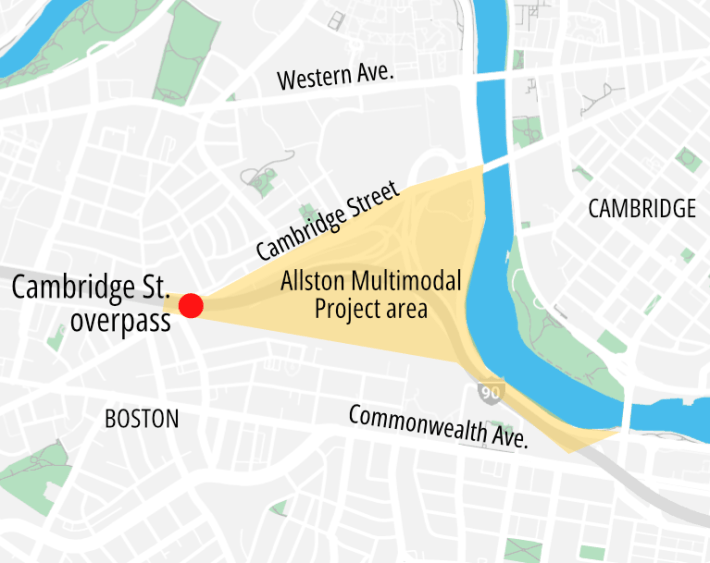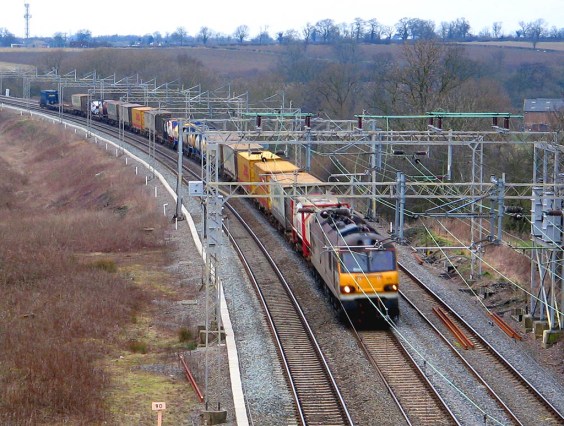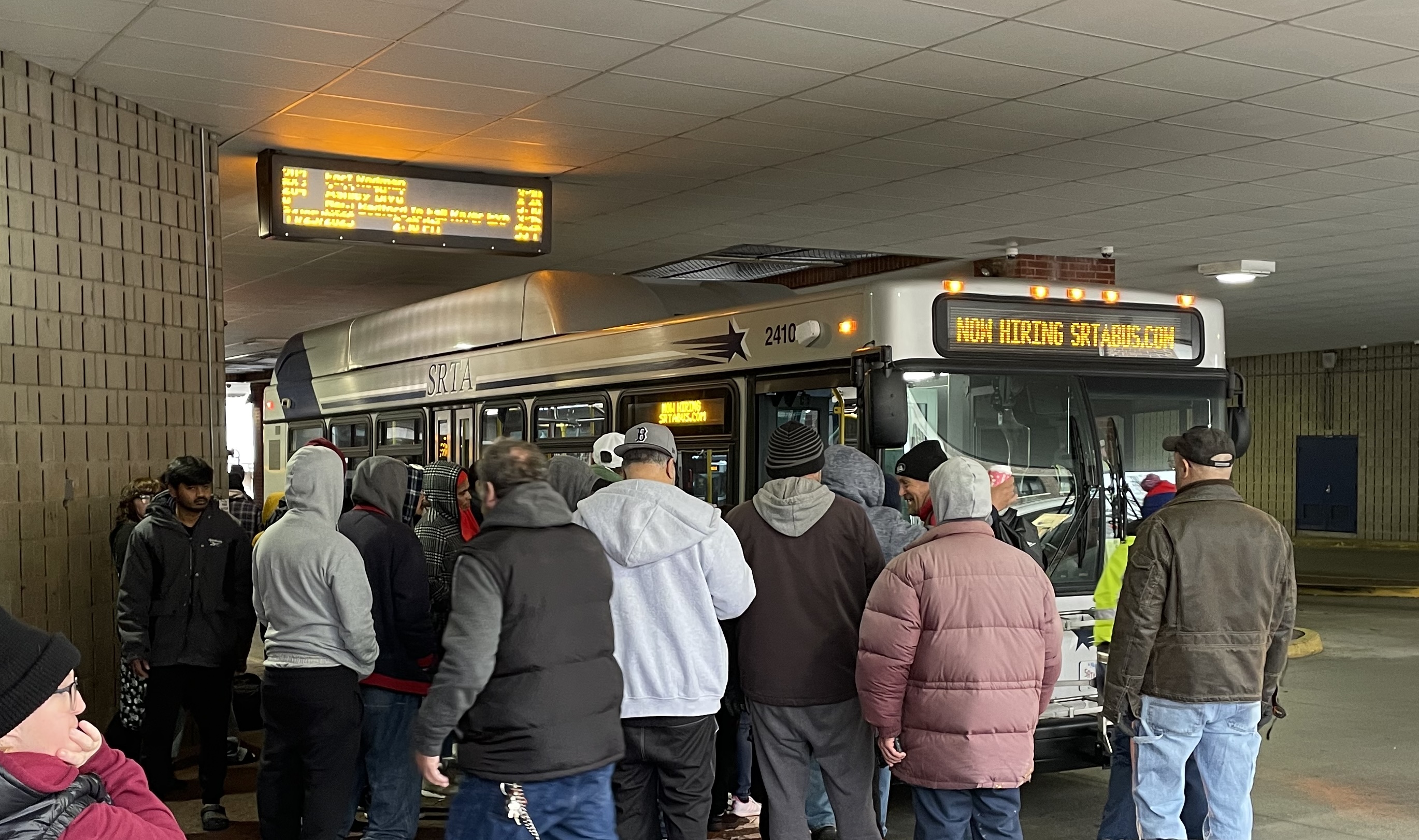Last week's enactment of the so-called "Big Beautiful Bill" eliminated billions of dollars in unobligated funding for the federal Reconnecting Communities grant program – including all but $8 million of a $335 million grant for the Allston I-90 highway realignment in Boston.
Section 60019 of the "One Big Beautiful Bill Act," which became law on July 4, states that "the unobligated balances of amounts made available to carry out
section 177 of title 23, United States Code, are rescinded."

That language eliminates about $2.4 billion in unspent funding for the "Neighborhood Access and Equity" grant program from the Inflation Reduction Act of 2022.
In March 2024, the Biden administration announced that one of the biggest beneficiaries of the Neighborhood Access and Equity grant program would be the Allston I-90 project, which received a pledge of $335 million.
The new budget law strikes yet another major blow to MassDOT's plans for Allston.
The project had already been struggling with major logistical challenges and a large financing gap even before Republicans in Washington eliminated this crucial source of its funding.
Use it or lose it (we lost it)
After the Biden administration's Department of Transportation announced its grant award last March, MassDOT needed to enter a formal agreement with Washington to receive the funds – a process called "obligation."
In the eyes of the federal Treasury, once a federal grant as been obligated, the money is considered spent, whether or not the recipient has used it yet.
It's incredibly frustrating that MassDOT let this funding slip through their fingers."
Jessica Robertson, Allston resident and member of MassDOT's project advisory task force
Obligating a grant requires Washington and its grant recipients to come to a formal agreement of a what the funds will be used for. But MassDOT and its consultants have struggled for years to agree on how the Allston I-90 project should be built.
And as long as major questions about the project's design remained unresolved, a formal project agreement remained out of reach.
When the budget law passed last week, MassDOT press officials expressed uncertainty about whether the funding for Allston I-90 was really gone.
But a U.S. Treasury database of federal grants, usaspending.gov, indicates that only $8 million of the Allston I-90 grant had been obligated before the new law passed.
StreetsblogMASS has reached out to MassDOT and USDOT to try and learn what that $8 million in grant funding had been obligated for, but we've not yet heard a response from either agency.
"It's incredibly frustrating that MassDOT let this funding slip through their fingers," Jessica Robertson, an Allston resident and member of the project's advisory task force, told StreetsblogMASS on Thursday.
Robertson noted that MassDOT's indecision on a controversial multi-acre train yard in the middle of the project "complicated the design and delayed the process."
Other Reconnecting Communities grants remain intact (for now)
Congressional Republicans had been targeting the Neighborhood Access and Equity funding since April, and a few agencies were more successful in being able to sign grant obligation agreements before Trump signed the new law.
Another Massachusetts project slated to receive funds from the same program – a $561,000 planning grant for the MBTA and the City of Lynn to study new pedestrian connections and transit-oriented development opportunities near the River Works regional rail station – had already fulfilled its obligation agreement with Washington before the end of 2024, so that funding should remain intact.
A City of Cambridge project to install a new bike and pedestrian crossing of the Fitchburg Line tracks in the vicinity of Fresh Pond and the Alewife Red Line station will also lose most of its funding – the Biden administration had pledged $2.4 million for that project, but only $400,000 had been obligated before Trump's budget cuts took effect.
The new budget law also won't affect several other "reconnecting communities" grants funded through the older Infrastructure Investment and Jobs Act of 2021.
The legal language that authorized the "reconnecting communities" funding in 2021 is very similar to the language that created the Neighborhood Access and Equity program. Both programs shared a unified grant application process in 2023, but legally, they are two different parts of the federal budget.
Some of the "reconnecting communities" projects that remain unaffected by the new budget law include:
- A $43.2 million construction grant for Somerville to build its long-planned McGrath Boulevard project.
- Planning funds for the City of Everett to improve connections across Sweetser Circle and Revere Beach Parkway ($1.2 million)
- A $1.8 million grant for the City of Boston "to assess the feasibility of reconnecting the Chinatown neighborhood (that was) separated by the construction of Interstate 90 in the 1960s."
- A $750,720 grant for the City of North Adams to plan for the removal of the Route 2 highway overpass in the heart of the city's downtown district.
- A $1.6 million planning grant for the City of Pittsfield to "remove an arterial interchange (Center Street) that splinters the west side from downtown."





